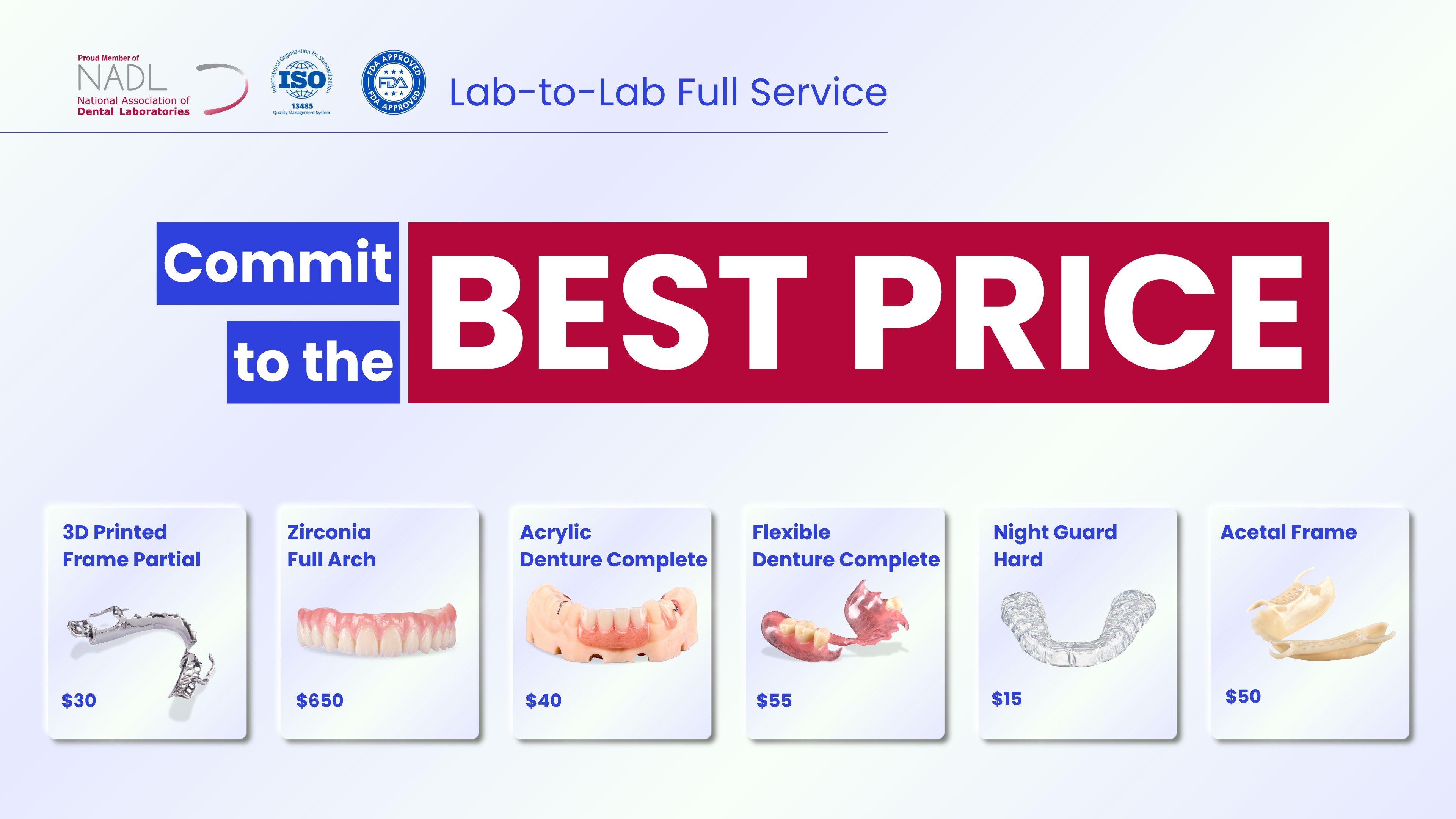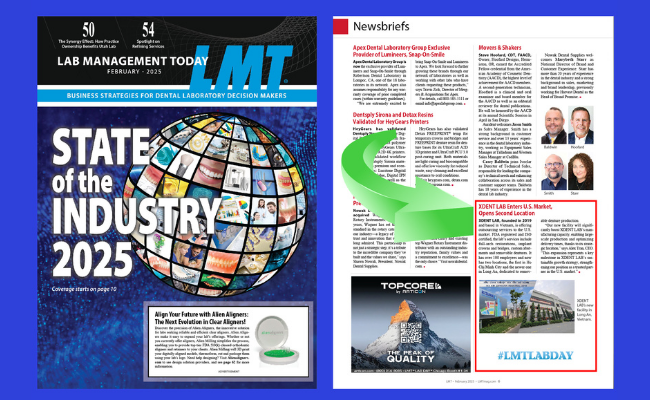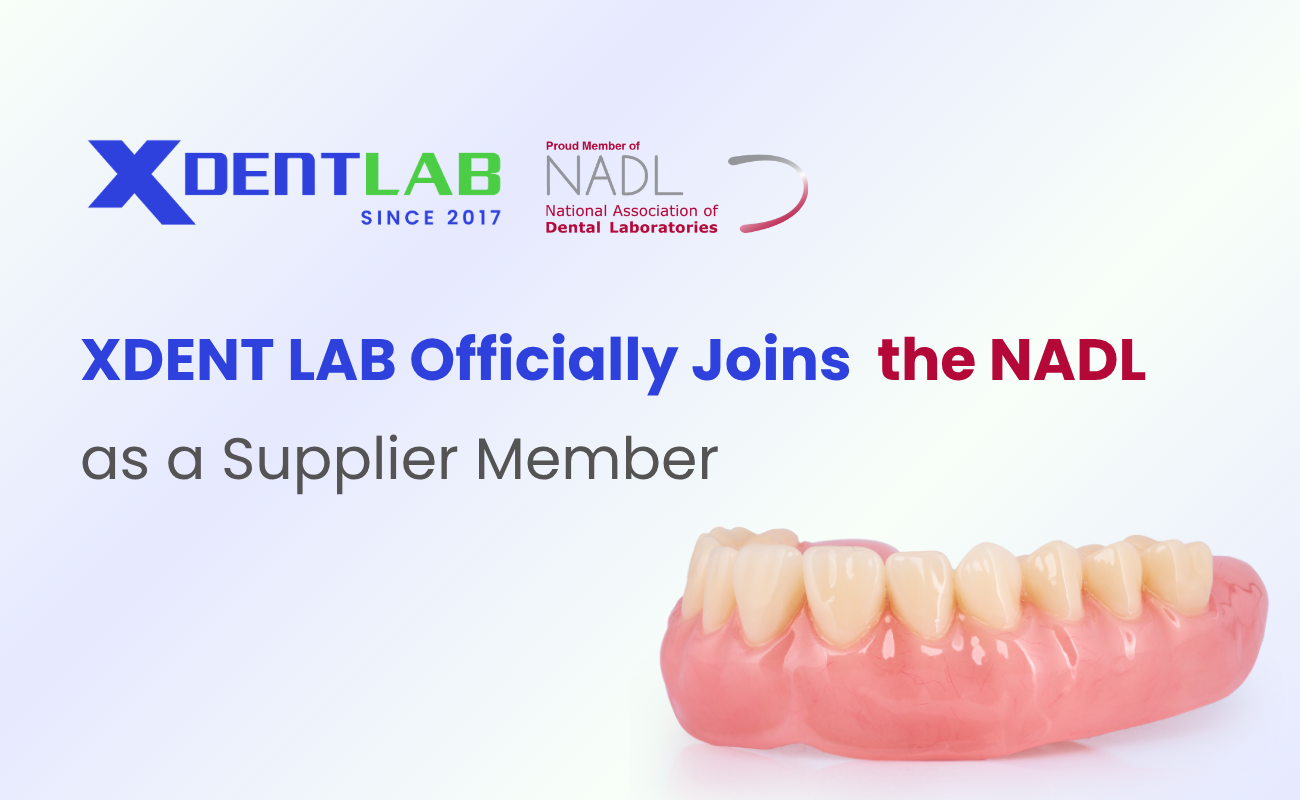Trusted. Commitment. Quality
We are a trusted, large-scale Lab-to-Lab outsourcing partner with two advanced manufacturing facilities, specializing in high-quality Removable and Implant prosthetic solutions that meet international standards.
Our products are FDA-registered, ISO 13485-certified, fully compliant with U.S. market regulations, and we are proud to be recognized as a Trusted Supplier by the National Association of Dental Laboratories (NADL). Founded in 2017 in Vietnam, XDENT LAB has grown from a local dental laboratory into a global manufacturing partner for international labs. We offer reliable scalability, consistent quality, and fast turnaround times.
Our competitive edge lies in our ability to combine large-scale manufacturing with personalized service. Our responsive support team understands your lab’s unique needs and is committed to helping you achieve operational excellence.
Whether you’re aiming to reduce operating costs, scale production, or ensure consistent quality, XDENT LAB is purpose-built to drive your lab’s sustainable growth.
Product quality has always been the core value of our business. That is why every product is strictly inspected before delivery and backed by a warranty of up to five years as a commitment to our credibility and responsibility.
Each of our customer care consultants supports the same client for years, gaining deep insight into their workflow and needs. This long-term partnership ensures personalized service, seamless communication, and consistent support.
We leverage our strategic geographic location and free-trade advantages to optimize operational costs, enabling us to confidently offer the most competitive pricing to our partners.

Our Products
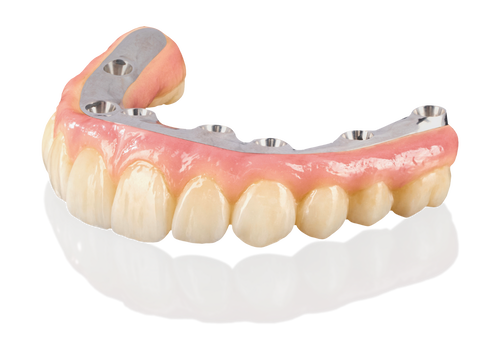
Dental Implant
Zirconia Hybrid, PMMA Hybrid, Titanium iBar, Screw-Retained Implant Crown & Bridge, Customized Abutments
- Up to 5-Year Warranty
- 2~3 days Turnaround Time
- Multi-Tier Production Choices

Removables
Full Denture, Digital Denture, Partial Denture, Orthontics Appliances, Extra Charge.
- Up to 5-Year Warranty
- 2~3 days Turnaround Time
- Multi-Tier Production Choices
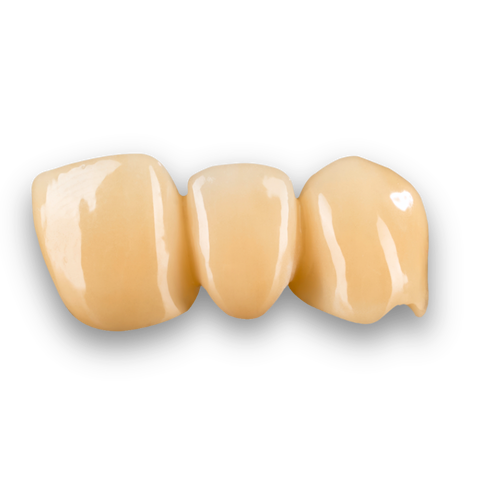
Crown & Bridge
All-Ceramic Crown & Bridge, PFM Crown & Bridge, Full Cast Crown & Bridge
- Up to 5-Year Warranty
- 2~3 days Turnaround Time
- Multi-Tier Production Choices
Produced with materials such as:
How To Get Start
1. CASE SUBMISSION
- Portal ( Magic Touch Web App )
- WeTransfer

2. CAD DESIGN
Ex: iTero, Medit, Trios, Shinning 3D, Dexis, Carestream, Dentsply, Sirona,...

3. PRODUCTION
- Digital Impression: 2~3 business days in lab

4. SHIPPING
- UPS, FedEx
- 2~3 days shipping to U.S.

After many years of working together, what impresses us most is that we have grown together. Without XDENT LAB as a trusted partner standing by our side and supporting us through critical challenges, we would not have been able to go this far.
Proud to Be a Strategic Partner of Evident
We are proud to be a strategic partner of Evident, one of the world’s leading providers of dental CAD design solutions.
This partnership brings a powerful synergy that benefits dental labs worldwide: AI-powered, world-class CAD design by Evident is seamlessly integrated with precise, quality controlled manufacturing by XDENT LAB, ensuring exceptional consistency, efficiency, and scalability across the Digital Denture and Implant workflow.
The collaboration between XDENT LAB Vietnam and Evident is not just a technological step forward, it’s a shared commitment to building a smarter, more efficient, and trustworthy Lab-to-Lab ecosystem.
Through full integration from design to manufacturing, we aim to deliver sustainable value to labs worldwide, especially in the U.S. market, where Trusted. Commitment. Quality are key.
Press Release - LMT Magazine

XDENT LAB Enters US Market, Opens Second Location
As highlighted in the article: “XDENT LAB's new facility is strategically designed to optimize the production process of Removable Dentures, meeting the strict standards of the U.S. market, with a total area of 1,500m². Over the years, the company has meticulously refined its production process, prioritizing strict procedural compliance to ensure consistent quality and on-time delivery.”
Our Latest
News and
Articles
Special thanks to the media for sharing our story with dental lab partners worldwide 🔥
We’re Here
to provide the answers you need.
If your question isn’t covered in the FAQs, feel free to reach out to us directly.
We offer a range of Full Arch restorations including Zirconia Hybrid, Titanium Bar, PMMA Hybrid. Each restoration is designed to ensure predictable fit, natural esthetics, and long-term durability.
Our Lab-to-Lab workflow is simple and efficient. Partner labs can send digital files (.stl) through our upload portal, or ship physical impressions/models. Once received, XDENT LAB handles the design, fabrication, and finishing, then returns the completed case ready for final delivery.
Our average turnaround time is 2~3 days in lab after receiving complete files or models. We prioritize efficiency and consistency to help partner labs meet their delivery schedules.
XDENT LAB maintains a remake rate below 1%.
We work with DHL, FedEx, and UPS for international logistics. All shipments are tracked and insured, and our support team assists with documentation to ensure smooth customs clearance.
Latest Blog
Save $100 on your first cases
Take the first step in building a reliable partnership with XDENT LAB. As a welcome gift, you’ll receive a $100 bonus applied directly to your very first cases. We are providing Dental Labs in the U.S. with an easy, stress-free, and personalized journey.

